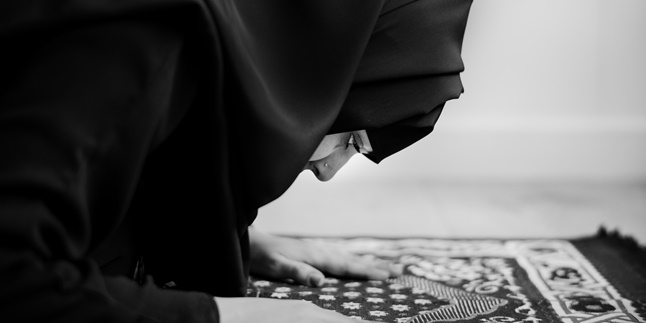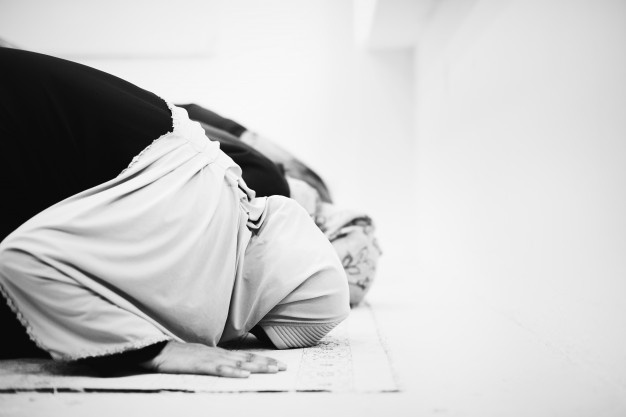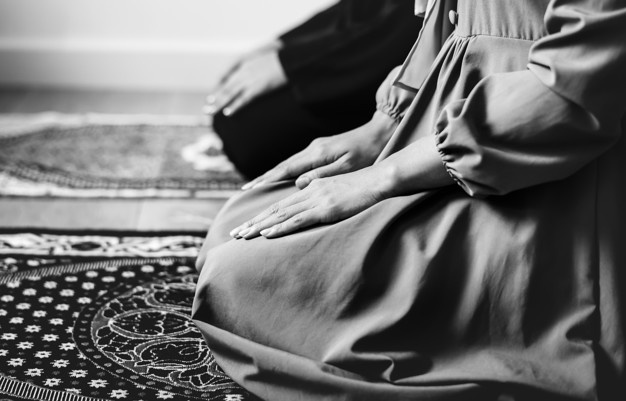9 Causes of Productive Cough and How to Treat It, Also Recognize the Color of Phlegm!
Productive cough is one of the cough complaints that can affect anyone. The cause of productive cough is due to various factors that cause mucus or phlegm.

Kapanlagi.com - For Muslims, prayer is a mandatory worship activity to be performed, even when traveling or sick. However, it's not only obligatory prayers, in Islam there are also several sunnah prayers that are performed outside of obligatory prayers. Unlike obligatory prayers that must be performed, sunnah prayers are one of the prayers that, if performed, will be rewarded, and if not performed, it's also okay.
So, for that reason, you also need to know the various types of sunnah prayers in Islam to increase your knowledge. Although classified as sunnah prayers, there are many benefits that you can get when performing them, so it's a shame if you miss them. Here are the various types of sunnah prayers along with their virtues and procedures. Let's take a look.
READ ALSO: Know the Intention of Sunnah Prayers Before Obligatory Prayers with Their Virtues

(credit: freepik)
The various types of voluntary prayers that you need to know include the Dhuha prayer. This prayer is performed around 7 in the morning, when the sun rises and it starts to feel hot before Dhuhr prayer. However, the best time to perform it is in the second quarter of the day or at 9 in the morning.
The Dhuha prayer is performed in units of 2 rak'ahs for each prayer. The number of rak'ahs is 8, but some say it is permissible to perform 12 rak'ahs, or there is no limit. By performing the Dhuha prayer, Allah promises to build a palace for you in heaven, forgive your sins, prevent diseases, and bring sustenance. Here is the procedure for performing the Dhuha prayer:
-Intention
"Ushallii sunnatadh-dhuhaa rakataini lillaahi taaalaa. Allaahu akbar. "which means: "I intend to perform the Dhuha prayer, two rak'ahs, for the sake of Allah the Exalted. Allah is the Greatest.
-Recitation of the opening supplication
-Recitation of Surah Al-Fatihah
-Recitation of a Surah from the Quran (It is recommended to recite Surah Asy-Syam in the first rak'ah, and Surah Al-Lail in the second rak'ah)
-Then, perform the prayer movements as usual.
This sunnah prayer is one of the sunnah prayers that accompany the obligatory prayer. In terms of time, the rawatib prayer is divided into two, namely qabliyah and ba'diyah prayers. The virtue of the rawatib sunnah prayer is to build a house in heaven and be protected from the fire of hell. The rawatib sunnah prayer is usually performed before or after the obligatory prayer. The total number of rak'ahs is 22. -Shalat Subuh: 2 rak'ahs before (qabliyah) and no prayer after (ba'diyah). -Shalat Dzuhur: 2 rak'ahs qabliyah, 2 or 4 rak'ahs ba'diyah. -Shalat Ashar: 2 rak'ahs qabliyah, no ba'diyah. -Shalat Maghrib: no qabliyah, 2 rak'ahs ba'diyah. -Shalat 'Isya: 2 rak'ahs qabliyah, 2 rak'ahs ba'diyah.

(credit: freepik)
Furthermore, the recommended prayer that is equally virtuous is the Tahajjud prayer. The Tahajjud prayer is performed after the Isha prayer and before the Fajr prayer. It is performed after waking up from sleep. The number of Rak'ahs for the Tahajjud prayer is two and it is not limited. The main time to perform the Tahajjud prayer is the last third of the night, which is between 01:00 and the beginning of Fajr time. The following is the procedure for performing the Tahajjud prayer.
- Intention
"Ushallii sunnatat tahajjudi rakataini lillaahi taaalaa."Meaning, "I intend to pray two Rak'ahs of the Tahajjud prayer, for the sake of Allah Taala.
- Recite Takbir
- Recite the opening supplication (Dua Iftitah)
- Recite Surah Al-Fatihah followed by a short Surah
- Perform the prayer movements as usual.
- It is recommended to recite supplications, Tasbih, Tahmid, Takbir, Salawat, and Istighfar after the Salam.
Istikhara prayer is also a type of recommended voluntary prayer to be performed when we are faced with uncertainty in making a choice. The implementation of istikhara prayer is the same as the voluntary prayer in general. The number of rak'ahs in istikhara prayer is two rak'ahs at an unspecified time.
However, some scholars state that the prime time to perform istikhara prayer is in the last third of the night. The virtue of istikhara prayer itself is to obtain guidance from Allah SWT, to strengthen one's choice, and to bring tranquility to the heart. The following is the procedure for performing istikhara prayer.
-Intention
"Ushalli sunnatal istikhaarati rakataini lillaahi taaalaa;" which means: "I intend to perform the voluntary prayer of istikhara, two rak'ahs, for the sake of Allah Taala."
-Takbiratul Ihram
-Reciting the Opening Supplication
-Reciting Surah Al-Fatihah, followed by reciting Surah Al-Kafirun for the first rak'ah and Surah Al-Ikhlas for the second rak'ah.
-Then, the prayer is performed as usual, following the usual movements of prayer, until the salutation.

(credit: freepik)
Prayer of need is one of the recommended prayers performed to ask Allah SWT to fulfill a desire. The number of rak'ahs for the prayer of need is 2 to 12 rak'ahs with a salutation after every two rak'ahs. In addition, the virtue of the prayer of need is to seek forgiveness for one's sins and to be elevated in status by Allah. Here is the procedure for the prayer of need.
-Intention
"Ushallii sunnatal haajati rakaataini lillaahi taaala."which means:"I intend to pray the sunnah prayer of need, two rak'ahs, for the sake of Allah Taala"
-Recite the opening supplication
-Recite Surah Al-Fatihah, followed by reciting Surah Al-Ikhlas, and in the second rak'ah, recite Ayat al-Kursi
-Perform the prayer with the usual prayer movements until the salutation
-After finishing the prayer, it is recommended to recite Istighfar 100 times, send blessings upon the Prophet 100 times, and then supplicate
The prayer of repentance is a recommended prayer that aims to seek forgiveness from Allah SWT. This prayer is performed with a minimum of 2 units (raka'at) and a maximum of 4-6 units (raka'at) with one salutation after every 2 units (raka'at).
-Intention
"Ushalli Sunnatat Taubati Rakataini Lillaahi Taaalaa. Allaahu Akbar." which means: "I intend to perform the Sunnah Prayer of Repentance, two units (raka'at), for the sake of Allah, Allah is the Greatest.”
-Say Takbir (takbiratul ihrom) simultaneously with the intention in the heart
-Recite the opening supplication (doa iftitah)
-Recite Surah Al-Fatihah, followed by any other surah from the Quran
-Perform Ruku (bowing)
-Stand up straight after Ruku (itidal)
-Perform Sujud (prostration)
-Sit between the two Sujud (sitting position)
-Perform the second Sujud (prostration)
-Stand up for the second unit (raka'at), then continue as in the first unit (raka'at) until the salutation.
Those are various types of recommended prayers along with their virtues and procedures. Hopefully, they can enhance your worship in performing recommended prayers. May it be beneficial.
(kpl/dtm)
Cobain For You Page (FYP) Yang kamu suka ada di sini,
lihat isinya
Productive cough is one of the cough complaints that can affect anyone. The cause of productive cough is due to various factors that cause mucus or phlegm.
Online learning is a term that is frequently mentioned lately. Online learning is short for "in-network" or equivalent to the term "online" in English. What is the complete explanation?
Traditional wet cakes are still quite popular and have many enthusiasts. The delicious and tasty flavors successfully spoil the taste buds of its consumers. Here are some types of traditional wet cakes in Indonesia that are most loved. What are they?
The term 'masuk angin' is very familiar to the people of the homeland, which is associated with certain health problems. However, the cause of 'masuk angin' can occur due to several common factors.
UKT is a payment system for higher education fees. How is it explained?
The cause of dark lips can occur due to factors that many people are unaware of. Although it may seem simple, this condition has a significant impact on the beauty and health of the lips.
Advertisements should not only be informative but also attractive. Therefore, the elements of advertising must be fulfilled. What is the explanation?
In Islam itself, impurities are classified into several categories according to their level. Such as mukhaffafah impurities or light impurities, mutawassithah impurities or moderate impurities, and mughalladhah impurities or heavy impurities.
These are some of the benefits of meditation for the health of the body and how to do it. What are the benefits? Let's check it out KLovers.
The causes of numbness in hands and feet can be experienced due to various factors, both common and due to health conditions.
Considering that clams come in dozens of varieties and not all of them are edible. So, what are the types of clams? Instead of being curious, check out the complete review below.
In studying dance art, there are many things to consider, such as various floor patterns. Check out the in-depth review below.